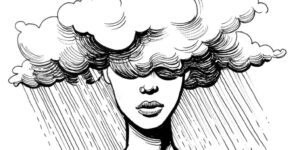Depression
 Can Cognitive Behavioral Counseling help with DEPRESSION?
Can Cognitive Behavioral Counseling help with DEPRESSION?
Cognitive behavioral therapy, or CBT, is a common type of talk therapy that for some people can work as well or better than medication to treat depression. It can be effective if your depression is mild or moderate.
How CBT Works
A therapist helps you identify negative or false thoughts and replace those thoughts with healthier, more realistic ones. For example, you might feel worthless or believe that your life is bad and will only get worse. Or you might obsess over your flaws and shortcomings.
First, CBT makes you aware you have these thoughts. Then it teaches you to swap them for more positive ones. The change in your attitude leads to a change in your behavior. That can help ease your sadness or depression.
How Well Does It Work?
Medication works well to treat depression. If you also get CBT, your treatment might work even better and the benefits might last longer. Most people who get CBT for depression continue to keep using the skills they learned in therapy a year later.
If you are on medication for depression, never stop taking it without talking to your doctor first, even if you’re working with a CBT therapist. If you quit suddenly, it can cause other problems.
 What to Expect
What to Expect
You can get CBT from a psychologist or a licensed counselor. Sessions can be one-on-one, in a group, or with self-help materials under your therapist’s guidance.
Usually, you won’t spend much time focusing on your past or your personality traits. Instead, your therapist will help you focus on what you feel and think now, and how to change it.
Treatment usually lasts 10-20 sessions. Some people go just a few times, while others may get therapy for more than a year. Your therapist may give you tasks to do on your own.
Before your treatment ends, your therapist will show you skills to keep your depression from coming back. If it does, it’s a good idea to pick up therapy again. You can also do it any time you feel bad or need to work through a tough problem.